If snorting is a new thing for your pup, they are snorting more than usual, having difficulty breathing, or showing other signs of illness (like a fever, low energy, or discharge from their nose), your vet should examine them.
If you are worried about your dog’s snorting, don’t hesitate to schedule an appointment with your vet. It is never a bad idea to play it safe and have them checked out, even if it is just for your peace of mind.

What Is Snorting in Dogs?
Snorting is an abrupt, loud noise created by air being forced through the nostrils. We typically associate snorting with exhaling. For the purposes of this article, we’ll also refer to other types of abnormal breath sounds that are related to snorting in dogs, such as snoring, coughing, and reverse sneezing.
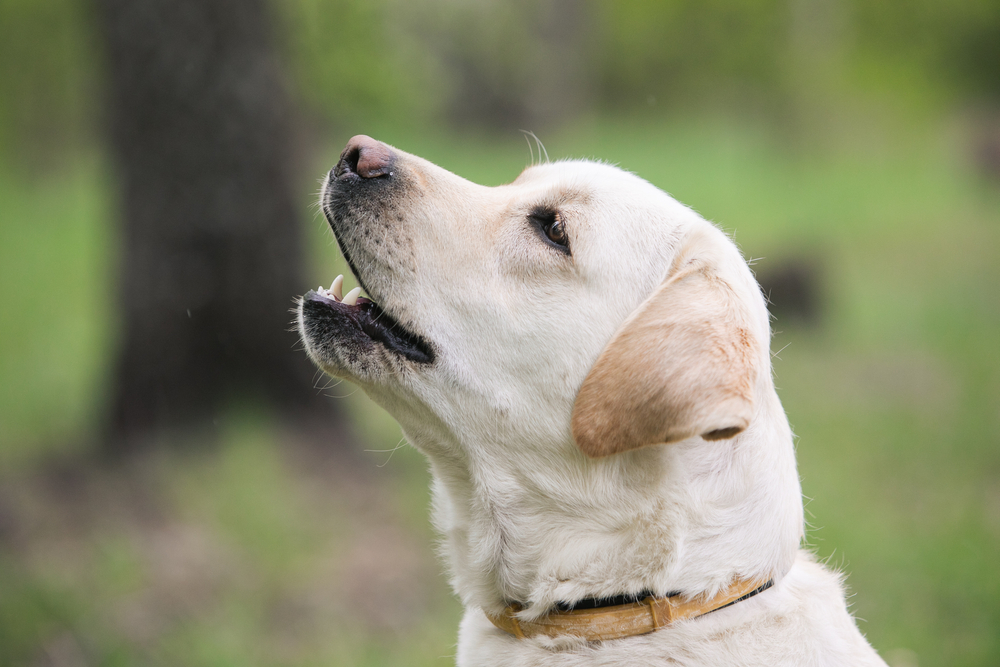
What Are the Signs of Snorting in Dogs?
In some cases, the signs are limited to the obvious sound of the snorting itself. In other cases, additional signs may be present.
Depending on the cause of the snorting, other signs may include:
- Excessive panting
- Gagging, retching, and vomiting
- Trouble eating/swallowing
- Reduced appetite
- Sneezing and coughing
- Discharge from the nose or eyes
A severe bout of snorting can progress to respiratory distress, especially if your pup is a brachycephalic breed. The signs that your dog needs to see a vet right away include:
- Breathing much faster than usual
- Shallow breathing
- Visible heaving of their belly with each breath (indicating they are using their abdominal muscles to breathe)
- Holding their head and neck in an extended position
- Panicky look in their eyes
If you are concerned that your dog may be having trouble breathing, please seek veterinary attention immediately.
If you need to speak with a vet but can't get to one, head over to PangoVet. It's our online service where you can talk to a vet online and get the advice you need for your dog — all at an affordable price!

What Are the Causes of Snorting in Dogs?
There are many possible causes of snorting in dogs. We will review some of the most common ones (in no particular order):
Brachycephalic Syndrome
Brachycephalic dogs have been selectively bred for their short noses and flat, wrinkly faces. Popular examples include Pugs, Boston Terriers, Boxers, and English and French Bulldogs. While their faces are adorably squishy, their anatomy is far from normal, which can have serious health consequences.
The hallmarks of brachycephalic syndrome are:
- Stenotic nares (small nostrils)
- Elongated soft palate (the flap of tissue at the back of the roof of their mouth)
- Everted laryngeal saccules (extra flaps of tissue near the vocal cords, which can block the airway)
These features make it harder for affected dogs to breathe. Some dogs are only mildly affected, but others require surgery to help them live a normal life.
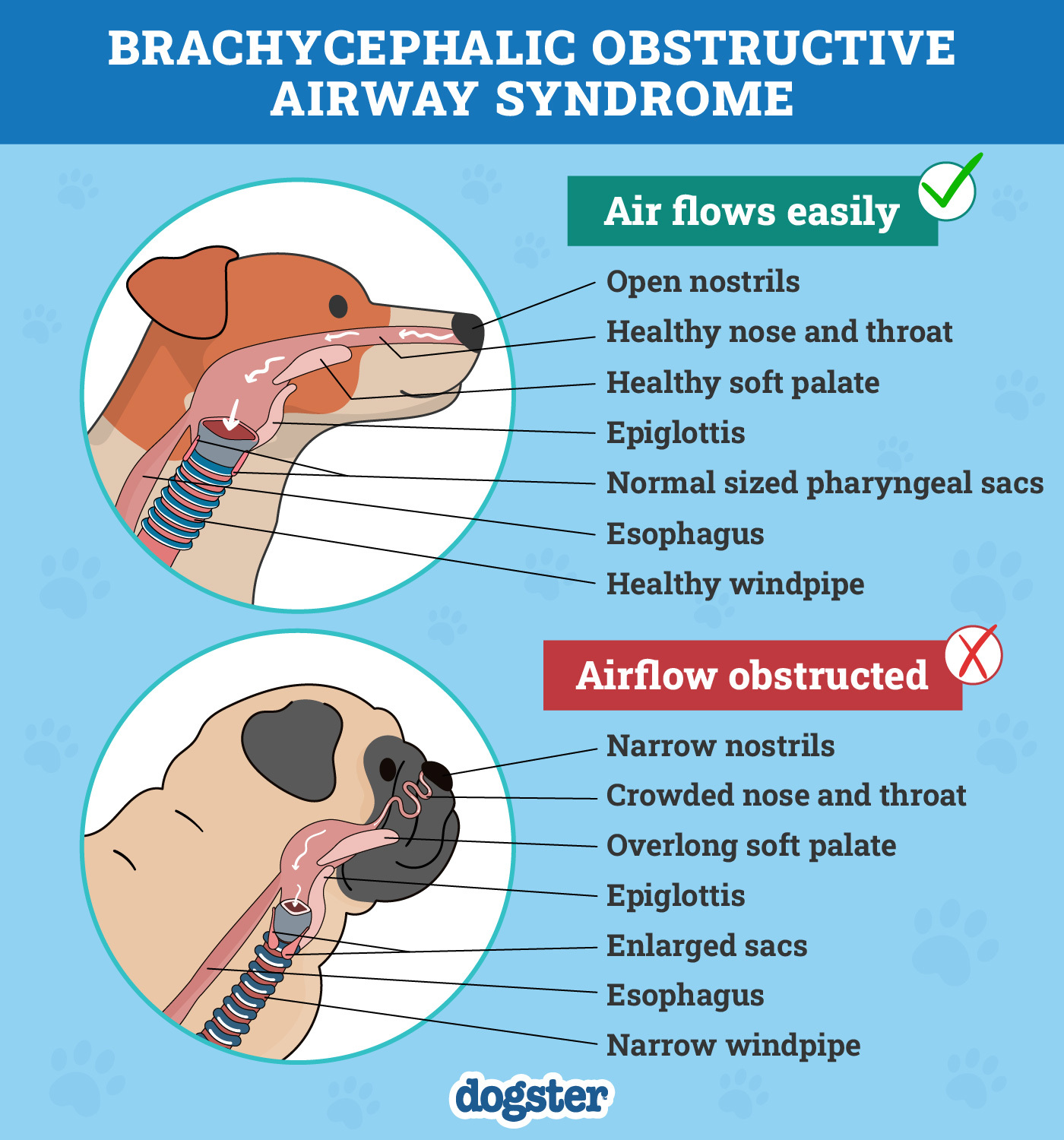
Allergies / Inhaled Irritants
Like people, dogs can be allergic to things in their environment, like dust mites, grasses, trees, and pollen. They can also be sensitive to irritants like smoke, perfume, and scented household items (e.g., essential oils, cleaning and laundry products).
Some dogs experience “reverse sneezing” after breathing in allergens or irritants. These episodes can sound pretty scary, but fortunately, in many cases, they resolve on their own within a few minutes.
An occasional bout of reverse sneezing is not usually a cause for concern. However, if it happens regularly or seems to cause your pup distress, it is a good idea to make an appointment with your vet.
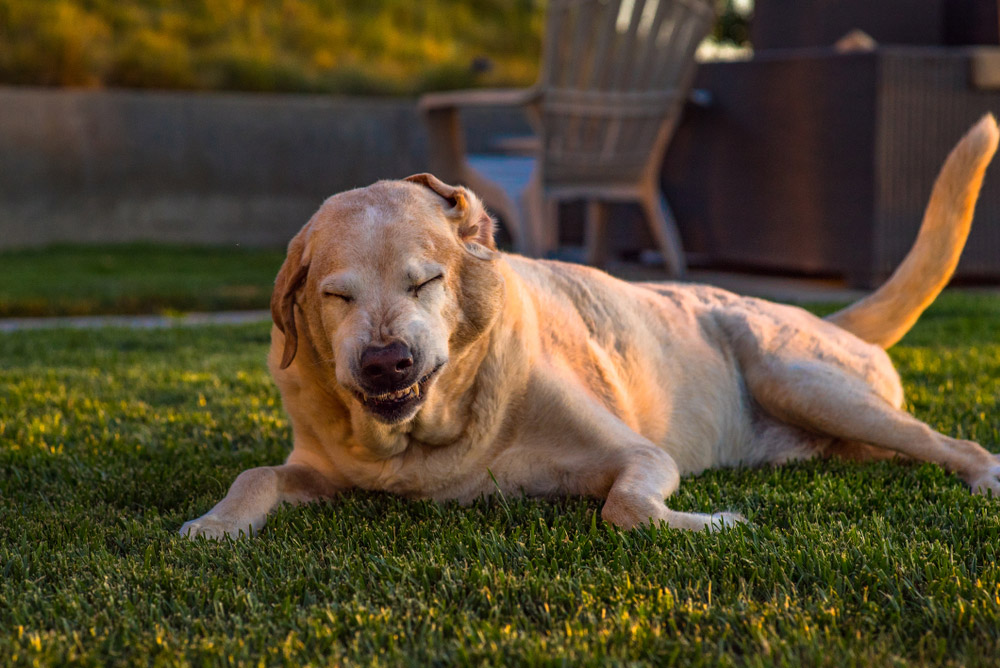
Infections
An infection affecting the nose or upper respiratory tract can cause snorting in dogs.
Examples include:
Kennel Cough
Kennel cough is not a specific disease, but it’s an umbrella term used to describe upper respiratory tract infection (URTI) in dogs. Kennel cough can be caused by several viruses, bacteria, or sometimes a combination of both.
It is highly contagious, spreading quickly at dog parks, dog shows, grooming facilities, and boarding kennels. Vaccination can protect your pup against kennel cough.
Dental Infections
Dental disease is extremely common in dogs, reportedly affecting over 80% of pups older than three years. Infection of the roots of teeth in the upper jaws can sometimes spread into the sinuses, causing sinusitis, which can include snorting, sneezing, and nasal discharge.
Blastomycosis
Blastomycosis is a fungal infection that dogs pick up by sniffing sand or soil containing Blastomyces dermatitidis spores. Dogs with blastomycosis often show respiratory signs like coughing and difficulty breathing in addition to general signs of illness, such as fever and lethargy.
Foreign Material (e.g., Foxtail)
Sniffing is a favorite canine pastime and a huge part of how our pups explore the world. Unfortunately, dogs sometimes inadvertently inhale pieces of plant material, which can become lodged in their nose. Foxtails are common culprits and are notorious for the irritation (and sometimes infection) they cause.
Tracheal Collapse
Tracheal collapse occurs in middle-aged and older toy-breed dogs. The cartilage in the trachea (windpipe) of affected dogs becomes softer over time, leading to the flattening of their main airways and making it hard to breathe.
There is no cure for this condition, but it can be managed successfully with lifestyle modifications, medication, and sometimes surgery.
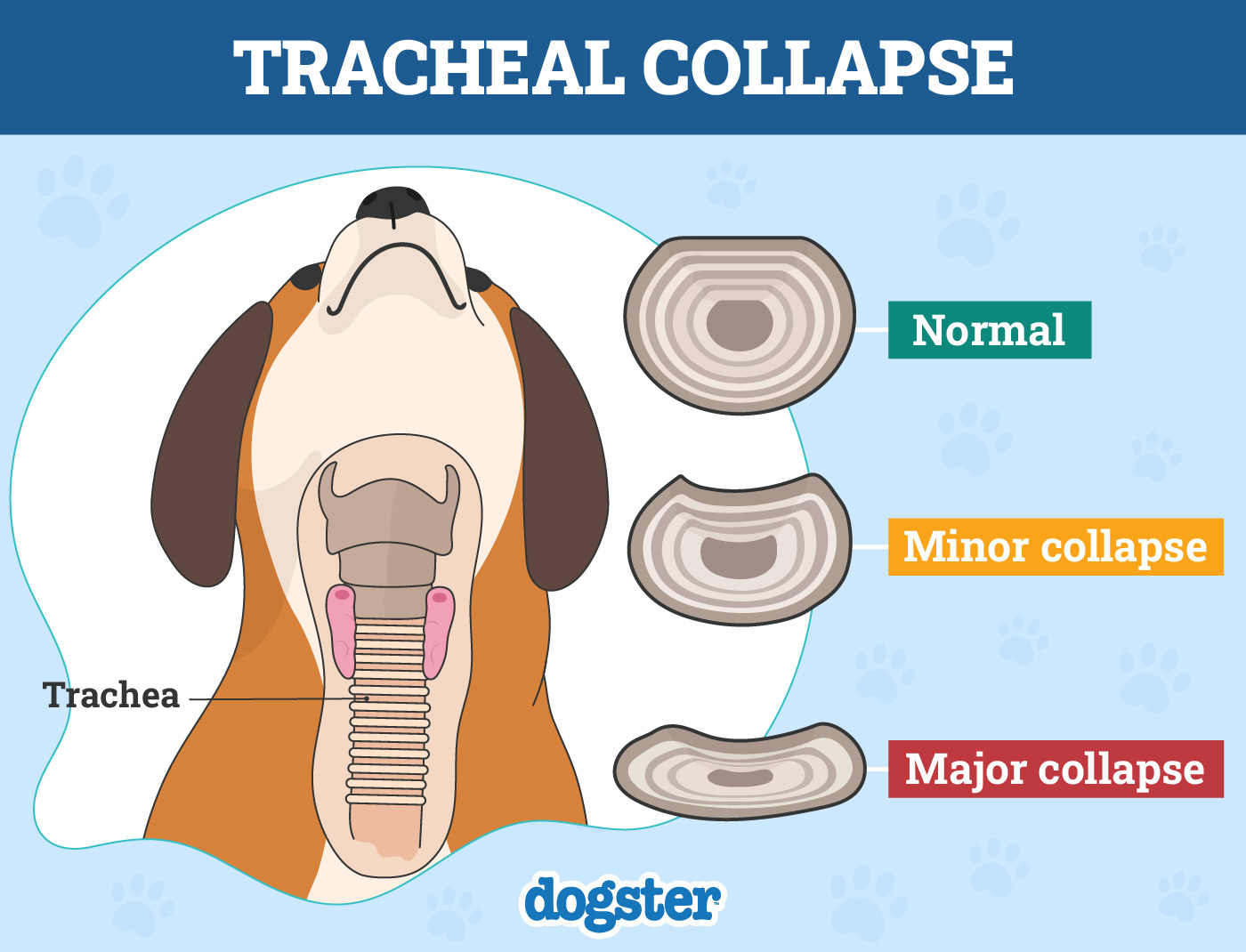
Laryngeal Paralysis
Laryngeal paralysis is a condition that tends to affect older large-breed dogs. It occurs when the cartilage of the larynx (voice box) no longer opens properly, resulting in noisy breathing and sometimes respiratory distress.
As with tracheal collapse, the treatment may involve surgery, medication, and lifestyle changes.
Nasal Tumors
Nasal tumors can be a cause of snorting in older dogs, but they are considered to be rare (accounting for less than 1% of all canine cancers).

How Is the Cause of Snorting Diagnosed in Dogs?
The approach to investigating your pup’s snorting will depend on their age, breed, and whether they show clinical signs other than snorting.
Your veterinarian will start with a complete physical examination. Based on their findings, they may recommend additional diagnostic testing such as:
- Bloodwork
- A sedated exam of the mouth and throat
- Radiographs (X-rays) of the skull, teeth, neck, and/or chest
- Advanced diagnostic imaging (e.g., CT scan, MRI)
- Endoscopic exam of the nasal passageways under general anesthesia
- Bacterial or fungal culture
How Is Snorting Treated in Dogs?
During an episode of snorting, the best thing you can do is stay calm and speak to your dog in a quiet, soothing voice. It can certainly be a scary experience for you and your pup, but fortunately, many bouts of snorting stop on their own within a few minutes.
If the snorting becomes a regular occurrence and your veterinarian identifies a specific cause, the treatment could involve surgery, medication, or lifestyle modifications.
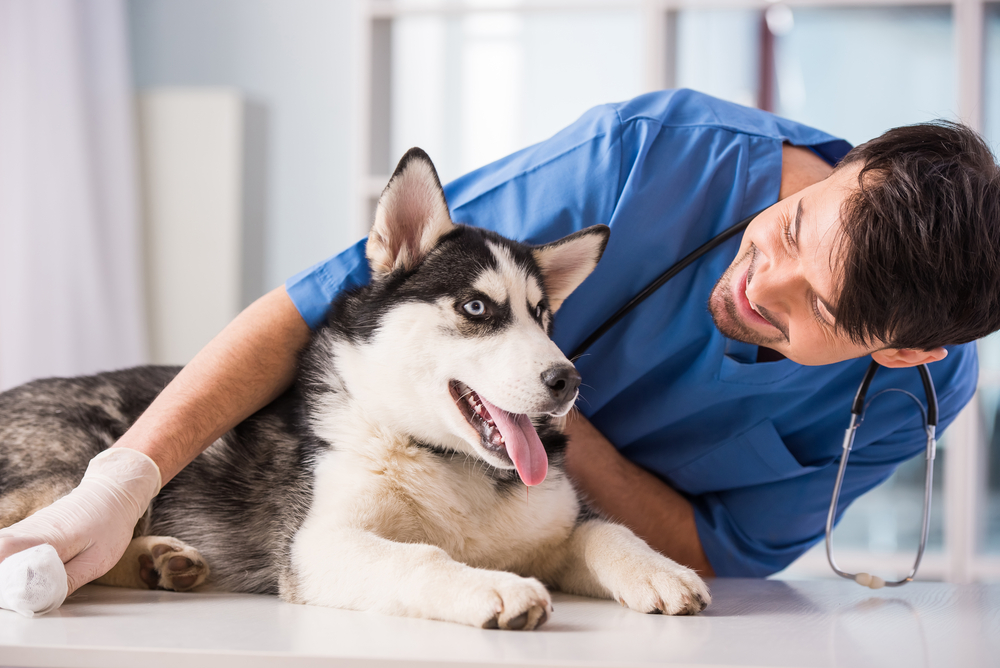
A Special Note About Caring for Brachycephalic Dogs
If you share your home with a brachycephalic dog, noisy breathing will likely be part of your daily life. As long as your pup breathes comfortably and acts normally, you do not need to do anything specific.
However, it is vital to be aware that brachycephalic dogs need extra care to ensure their snorting does not progress to respiratory distress:
- Have them evaluated by a veterinarian (ideally when they are a puppy) to determine how severely they are affected by the brachycephalic syndrome and whether they might benefit from surgery
- Walk your dog using a harness rather than a collar to avoid putting extra pressure on their throat
- Help them maintain a healthy body weight
- Monitor your pup closely when they exercise to make sure they don’t over-exert themselves
- Take care to keep them cool in hot weather (they are prone to heat stroke)

Frequently Asked Questions
Is It Normal for Dogs to Snort?
It can be normal for some dogs to snort and snore, particularly brachycephalic (short-nosed) breeds. However, if their snorting/snoring changes, seems excessive, or is associated with difficulty breathing, have them checked out by your vet to be safe.
When Should I Seek Veterinary Attention for My Dog’s Snorting?
An occasional snort from non-brachycephalic dogs is unlikely to be worrisome, but any of the following should prompt you to seek veterinary attention:
- Any sign of respiratory distress (trouble breathing)
- Snorting that is happening regularly or more often than it used to
- Snorting accompanied by other signs of illness, such as a fever, cough, decreased energy, and discharge from the eyes or nose

Conclusion
Snorting in dogs can have a wide range of possible causes. In general, mild snorting that happens occasionally is unlikely to be a cause for concern. However, if you are ever worried about your pup, do not hesitate to seek veterinary attention. Any time your pet’s breathing is involved, it is best to play it safe!
If you are thinking about adding a brachycephalic pup to your family, be sure to educate yourself about the special care they need. Look for a breeder who prioritizes health and aims to produce dogs that can breathe easily. Dogs with smooshed faces might look and sound adorable, but this should never be promoted over their quality of life.
Featured Image Credit: icealien, Shutterstock


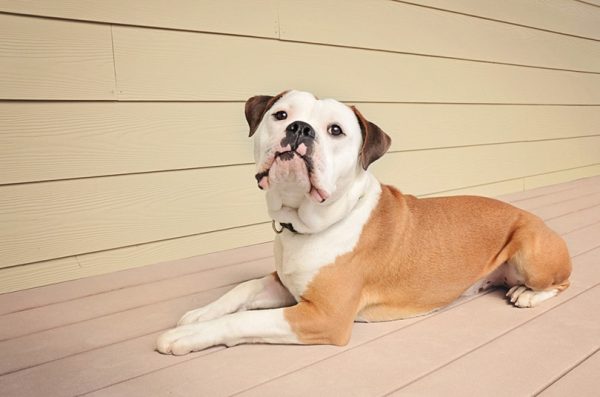


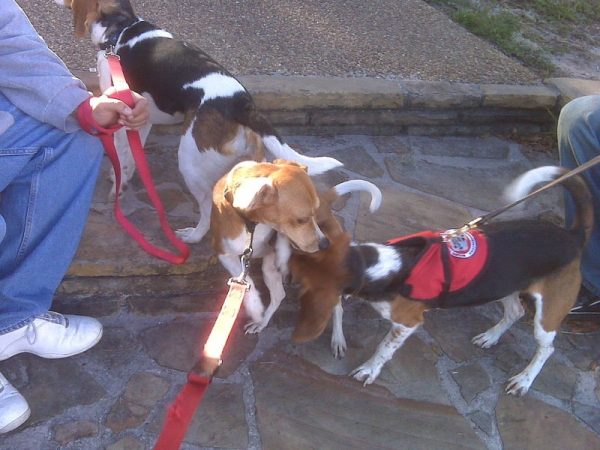
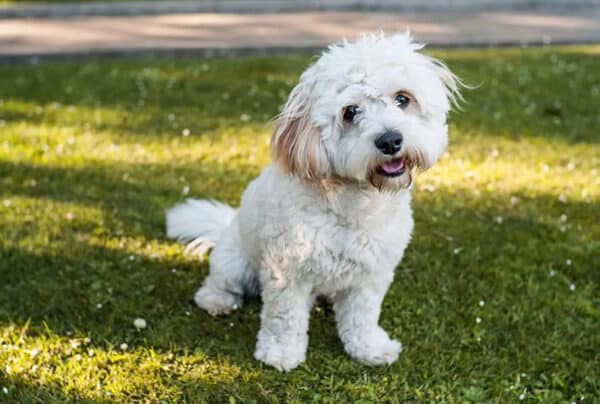
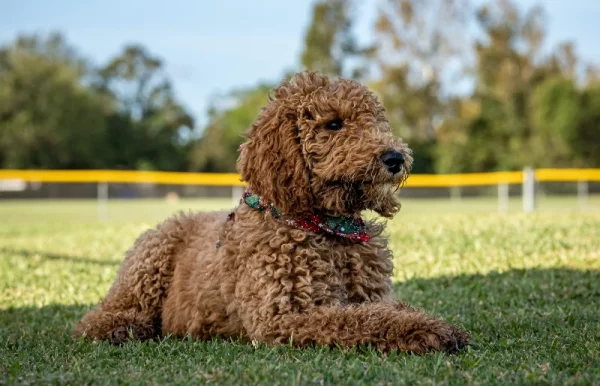
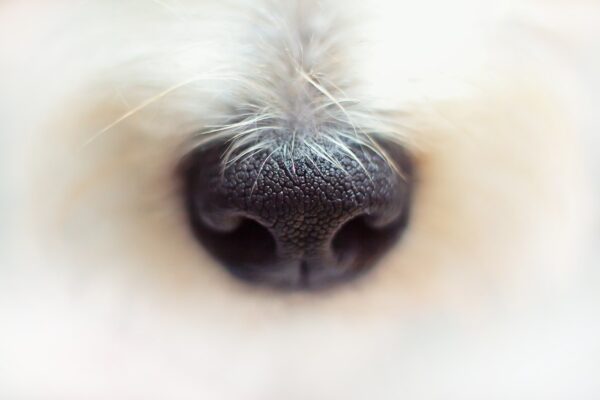

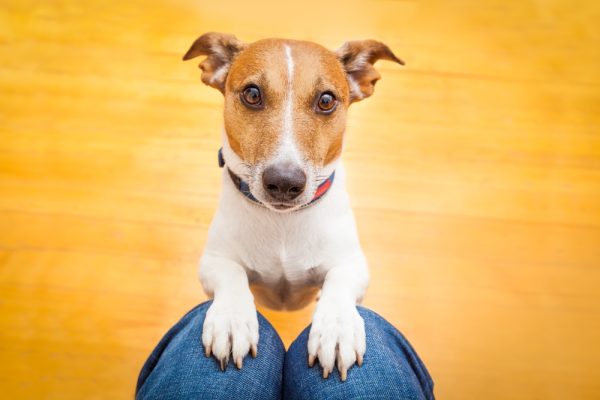
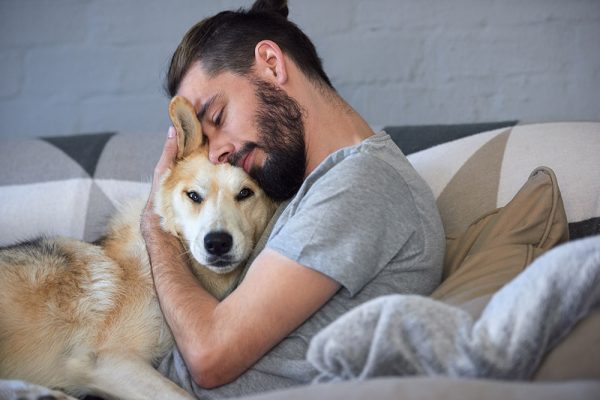









3 Responses
Our almost 50 pound mix-breed rescue is exhibiting what appears to be both heaving and snorting. He has allergies, and is on regular meds, but this is new,and a bit scary. Thoughts?
Hello Nancy,
Thank you for your message and sorry for a bit of a delay. We are very sorry to hear about your dog's health issues.
This sounds like something that should be consulted with a veterinarian. We would recommend you to book a video call appointment with one of our professional veterinarians from www.PangoVet.com. They will gladly take a look at your dog, let you know their opinion and what you can do to help.
hello,
My rescue dog, Zoey, is very affectionate and will lick my face, but then she starts to sneeze and snort at me. After reading your article, she must be affected by some irritant she gets from me. I don't wear perfume but do use a lotion on my face sometimes. She always greets me in the mornings by licking me with enthusiasm and the sneezing starts. Then it stops after she has stopped greeting me. does this sound like an irritant?
Thank you,
Dixie Meyer